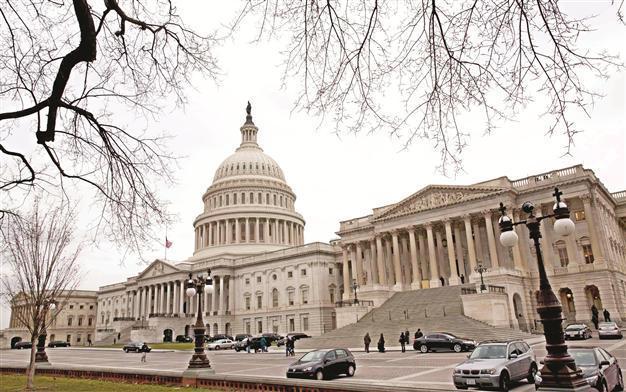Fiscal cliff fear hits consumers in America
WASHINGTON - The Associated Press

The White House is facing hard times due to a debt ceiling problem. REUTERS photo
U.S. consumers peering over the “fiscal cliff” don’t like what they see. Fears of sharp tax increases and government spending cuts set to take effect next week sent consumer confidence tumbling in December to its lowest level since August.The Conference Board said on Dec. 27 that its consumer confidence index fell for the second straight month in December to 65.1, down from 71.5 in November. The survey showed consumers’ outlook for the next six months deteriorated to its lowest level since 2011 - a signal to Lynn Franco, the board’s director of economic indicators, that consumers are worried about the tax hikes and spending cuts that take effect Jan. 1 if the White House and Congress can’t reach a budget deal.
Earlier this week a report showed consumers held back shopping this holiday season, another indication of their concerns about possible tax increases.
Political shadow
The December drop in confidence “is obvious confirmation that a sudden and serious deterioration in hopes for the future took place in December - presumably reflecting concern about imminent ’fiscal cliff’ tax increases,” said Pierre Ellis, an economist with Decision Economics.
The decline in confidence comes at a critical time when the economy is showing signs of improvement elsewhere.
A recovery in housing market is looking more sustainable. On Dec. 27, the government said new-home sales rapidly increased in November.
And the job market has made slow but steady gains in recent months. The average number of Americans applying for unemployment benefits over the past month fell to the lowest level since March 2008.
But the political wrangling in Washington threatens the economy’s slow, steady progress. President Barack Obama and House returned to Washington on Dec. 27 to resume talks.
With just days to go before the deadline
Mixed signals over those negotiations led to a rocky day on Wall Street.
Stocks plunged early after the weak consumer confidence report and a warning from Senate Majority Leader Harry Reid that the government appeared to be headed over the “fiscal cliff.” At one point, the Dow Jones industrial average fell as much as 150 points.
But the market came back in the final hour of trading on a potential sign of movement in the talks: Republican leaders announced they would bring the House back into session on Sunday evening. The Dow recouped nearly all of its losses to close down just 18 points at 13,096.
















